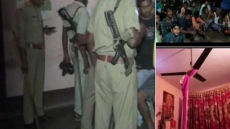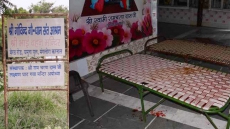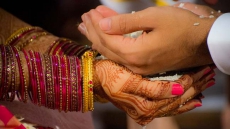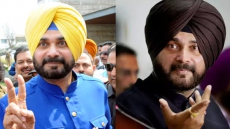In his address in Germany's Hamburg, Rahul Gandhi traced the creation of ISIS to warn against a similar situation at home if people are excluded from the development process.
Congress president Rahul Gandhi claimed that the incidents of lynching in India were due to "anger" emanating from joblessness and "destruction" of small businesses due to demonetisation and the "poorly implemented" GST by the ruling BJP.
In his address in Hamburg, Germany, Mr Gandhi traced the creation of ISIS to warn against a similar situation at home if people are excluded from the development process.
"It is very dangerous in the 21st century to exclude people. If you don't give people a vision in the 21st century somebody else will give them one.
"And that's the real risk of excluding large number of people from our development processes," he said, accusing the BJP government of excluding tribals, Dalits and minorities from the development process.
Asserting that the transformation taking place in the world requires certain protection for people, he accused the current dispensation in India of taking these protections away from them and hitting the informal economy through demonetisation and GST, causing anger which is leading to lynching incidents.
"They (the BJP government) feel that tribal communities, poor farmers, lower caste people, minorities shouldn't get the same benefits as the elite," the Congress president alleged.
Mr Gandhi claimed that the other thing the BJP has done is that they have started attacking the support structures created to help certain groups of people.
"That's not the only damage they've done. There's something much more dangerous," he said.
He alleged that a couple of years back Prime Minister Narendra Modi "demonetised the Indian economy and destroyed the cash flow" of all small and medium businesses rendering millions jobless.
"They imposed a badly conceptualised GST which complicated lives further," Mr Gandhi said.
"Large numbers of people who worked in small businesses were forced back to the villages and these three things that the government has done has made India angry.
"And that's what you get to read in the newspapers. When you hear about lynchings, when you hear about attacks on Dalits in India, when you hear about attacks on minorities in India, that's the reason for it," Mr Gandhi said.
He said that some of his own party members did not like it when he hugged PM Modi in Parliament.
Mr Gandhi also said there is a big job problem in India but the prime minister refuses to see it.
"You have to (first) accept the problem, to fix it," he said.
Mr Gandhi also spoke about India and its progress over the last 70 years.
Referring to his famous hug, after a no-holds-barred attack during a Parliament debate last month, Mr Gandhi said, "When I hugged PM Modi in Parliament, some within my party did not like it."
The Congress president also talked about his father, former prime minister Rajiv Gandhi's assailants.
"When I saw the man who killed my father lying dead in a field in Sri Lanka, I did not like it, I saw his crying children in him," he said.
Liberation Tigers of Tamil Eelam (LTTE) Velupillai Prabhakaran, responsible for the killing of Rajiv Gandhi, was shot dead by Sri Lankan troops in 2009.




